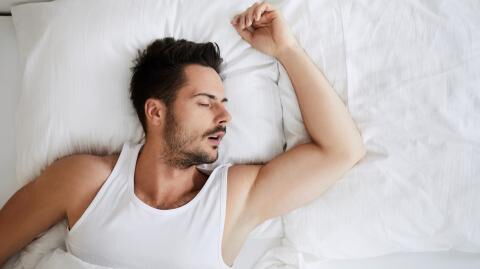A pensioner claims to have cured the 40-year-long snoring problem with a simple home treatment. She says not only has she stopped snoring, but the benefits of this technique can be felt in other aspects of her life.
Discover our latest podcast
Mouth taping
While scrolling on Instagram, Alice Roberts, 70, chanced upon a possible cure for the problem that has kept her up at night for decades. The post proposed literally taping one’s mouth shut at night to encourage breathing through the nose instead of the mouth.
So that evening, Alice taped her mouth shut with a two-inch piece of micropore tape and had what she described as the best sleep of her life. She said:
I was always exhausted, and tiredness brings you down, so I just felt sad a lot of the time. I exercise, and live by a river, and I’ve got so much going for me, so I couldn’t understand why I felt so sad all the time. Now I know it’s because I couldn’t get a good night’s sleep. I know I’m my own clinical study but it really works and it costs pennies

Mouth breathing
Most people who snore breathe through their mouths while sleeping. This may be due to nasal congestion or a force of habit. Apart from snoring, mouth breathing causes:
- Dental issues such as dryness in the mouth, bad oral odour and cavities
- Sleep apnea which can cause drowsiness during the day and increases risk of cardiovascular diseases
- Sleep disturbances from waking up frequently
- Sore throat & increased heart rate
Read more:
⋙ 6 Tricks To Finally Get Your Partner To Stop Snoring
⋙ Hypnic jerk: Why you feel like you are falling in your sleep
⋙ Weight loss: Sleeping longer could help you lose 12 kgs
How it works
Mouth taping works by forcing people to breathe through their noses when the mouth is closed. Most mouth breathers do not realize that when they fall asleep, their mouths open, preventing them from breathing the normal way. So, by keeping the mouth shut, they’re forced to breathe through their nose.

Like Alice, many people have attested to the health benefits of mouth taping. But, it is not a well-researched technique and could have side effects such as skin irritation around the lips and mouth and sticky residue from the tape.
Although these are not major side effects, it is still advisable to speak to a doctor or a sleep therapist about longer lasting options to help you sleep better.















